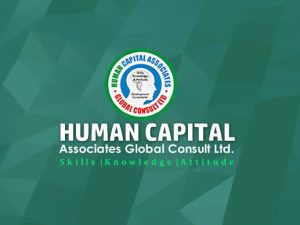Workshop on Maintenance and Reliability Best Practices
Workshop on Maintenance and Reliability Best Practices
May 13 – 17, 2024, 1st Run: Lagos & Abuja
November 11 – 15, 2024, 2nd Run: Lagos & Port Harcourt
For Tutor -Led Class: 9am – 4:30pm
Workshop fee: N300, 000 per Participant
For online: Delivery via Zoom
Online course fee: N250, 000 per Participant
Available for In-plant Training
Program overview:
Maintenance & Reliability Best Practices are critical for every successful company. This program will focus on many practical and new Maintenance and Reliability Best Practices concepts and tools. Participants will be exposed to these concepts and practices using practical tools in case studies and discussion groups. The costs associated with equipment downtime and reduced production can be significant. Learning how to effectively manage all aspects of your industrial facility is a must. This workshop is a combination of instructor lead topic areas and class discussions. Interactive discussions will allow you to hear and learn best in class applications relating to maintenance planning and cost management strategies. You will have the opportunity to ask lots of questions in order to consider how best to apply these tools and techniques as you get back to your organization.
For whom:
This course is particularly aimed at operating personnel performing in oil & gas, manufacturing as well as process and maintenance engineers. The course shall also be beneficial to other technical personnel who want to broaden their knowledge on maintenance and reliability best practices.
Learning objectives:
At the end of this program, participants will be able to: ·
- evaluate and justify your maintenance programs using: Value = Benefit – Cost;
- apply Life Cycle cost and risk planning to your facility assets;
- target Maintainability and/or Reliability in the development of your facility maintenance plans;
- learn the PLAN, DO, REVIEW cycle of continuous improvement;
- apply the theory of this session using practical case studies; and
- practice using improvement techniques.
Course outline:
Day 1 – Asset Cost Management Introduction
- Definitions of reliability, maintenance & asset management
- The total cost of maintenance,
- Best practice reliability and maintenance processes
- Elements of asset management best practice,
- Auditing performance
- Overview of TPM, RCM, BCM, QCM, and other asset management strategies
Day 2 – Laying the Groundwork
- Team-work maintenance, operations, stores
- The importance of standards such as PAS 55, JA1011
- Corporate asset management expectations,
- Asset performance expectations
- The forms of asset failure and degradation
- The causes and nature of asset failure and degradation
- The effects, cost and risks of asset degradation,
- Practical Application and discussion.
Day 3 – Applying the Value based Process
- Breaking the cycle of failure and degradation
- Select PM tactics on the basis of costs and risks,
- How to determine PM intervals
- Condition based maintenance types and the PF-curve
- The four important reliability functions,
- Implementing best practice maintenance programs,
- Optimizing spares to support the maintenance program
- Maintenance program cost and risk based justification
- Practical Application
Day 4 – Ensuring the Continuity of the Value-based Process
- Complete the PLAN, DO, REVIEW Improvement cycle
with FRACAS
- Failure Reporting, Analysis and Corrective Action
System requirements
- Structure and code data collection to support
reliability analysis
- How to quantify chronic failures and losses
- Use Pareto analysis and stratification to focus the
value-based analysis
- Quantify losses in life cycle terms,
- Reliability Analysis Case Study,
- Hypothesise root causes of failure and verify on
the basis of evidence
- Discussion of software and templates to support analysis
Day 5 – Supporting Process that Lower Life-cycle costs
- Planning and scheduling best practice,
- Cost effective man-power and skills deployment,
- Performance indicators to drive continuous improvement.
- Overall review of concepts learned
Training Methodology
Lectures, discussions, exercises, case studies, audio-visual aids will be used to reinforce these teaching/learning methods.
Related Courses






